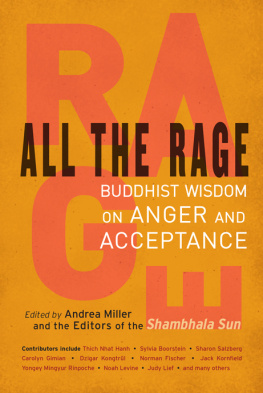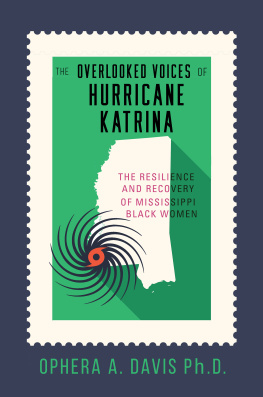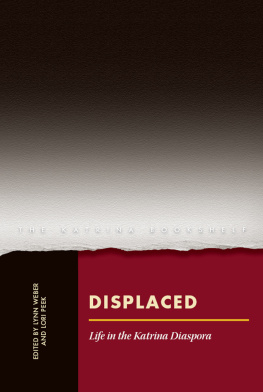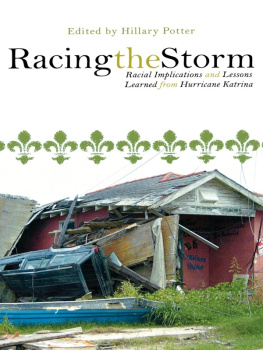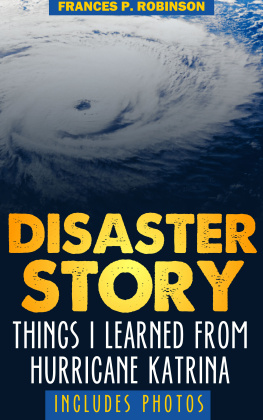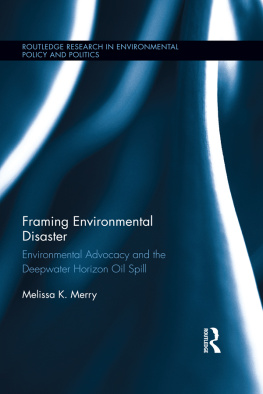Andrea Miller - Oil and Water: Media Lessons from Hurricane Katrina and the Deepwater Horizon Disaster
Here you can read online Andrea Miller - Oil and Water: Media Lessons from Hurricane Katrina and the Deepwater Horizon Disaster full text of the book (entire story) in english for free. Download pdf and epub, get meaning, cover and reviews about this ebook. year: 2014, publisher: Univ. Press of Mississippi, genre: Politics. Description of the work, (preface) as well as reviews are available. Best literature library LitArk.com created for fans of good reading and offers a wide selection of genres:
Romance novel
Science fiction
Adventure
Detective
Science
History
Home and family
Prose
Art
Politics
Computer
Non-fiction
Religion
Business
Children
Humor
Choose a favorite category and find really read worthwhile books. Enjoy immersion in the world of imagination, feel the emotions of the characters or learn something new for yourself, make an fascinating discovery.

- Book:Oil and Water: Media Lessons from Hurricane Katrina and the Deepwater Horizon Disaster
- Author:
- Publisher:Univ. Press of Mississippi
- Genre:
- Year:2014
- Rating:4 / 5
- Favourites:Add to favourites
- Your mark:
Oil and Water: Media Lessons from Hurricane Katrina and the Deepwater Horizon Disaster: summary, description and annotation
We offer to read an annotation, description, summary or preface (depends on what the author of the book "Oil and Water: Media Lessons from Hurricane Katrina and the Deepwater Horizon Disaster" wrote himself). If you haven't found the necessary information about the book — write in the comments, we will try to find it.
Along the Gulf Coast, history is often referenced as pre-Katrina or post-Katrina. However, the natural disaster that appalled the world in 2005 has been joined by another catastrophe, this one man-made--the greatest environmental and maritime accident of all time, the Deepwater Horizon Oil Spill. In less than five years, the Gulf Coast has experienced two colossal disasters, very different, yet very similar. And these two equally complex crises have resulted in a steep learning curve for all, but especially the journalists covering these enduring stories.
In Oil and Water, the authors show how Katrina journalists have reluctantly had to transform into oil spill journalists. The authors look at this process from the viewpoints not only of the journalists, but also of the public and of the scientific community. This book assesses the quality of journalism and the effects that quality may have on the public. The authors argue that regardless of the type of journalism involved or the immensity of the events covered, successful reportage still depends on the fundamentals of journalism and the importance of following these tenets consistently in a crisis atmosphere, especially when confronted with enduring crises that are just years apart.
Andrea Miller: author's other books
Who wrote Oil and Water: Media Lessons from Hurricane Katrina and the Deepwater Horizon Disaster? Find out the surname, the name of the author of the book and a list of all author's works by series.



